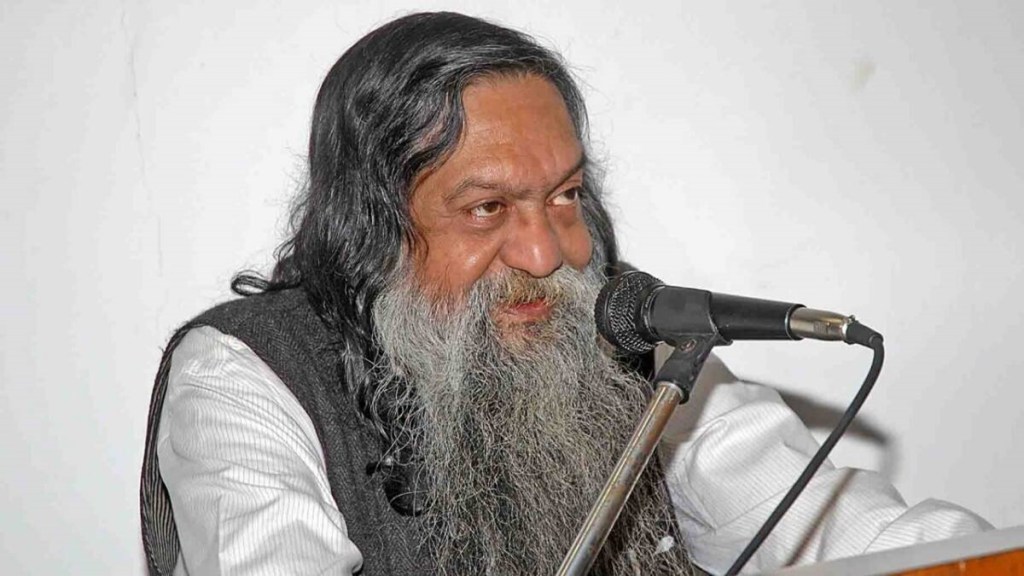Sri Lanka defaulted on its external debt for the first time in its postcolonial history…
Abhijit Sen, noted Farm Economist who Advocated Universal PDS, Passes Away Banikinkar Pattanayak

Abhijit Sen, the acclaimed agriculture economist who infused new vitality to the debate on the universalisation of the public distribution system (PDS) of key grains and endorsed an ambitious formula for fixing the support prices of crops, died Monday night. He was 72.
“He suffered a heart attack around 11 pm (on Monday). We rushed him to the hospital, but it was all over by the time we got there,” said Pronab Sen, his brother, who was also the country’s chief statistician and chairman of the National Statistical Commission.
Sen was arguably a transitional figure who bridged the gap between the old-style study of Indian agriculture and modern farm economics. While he was a votary of a more realistic price determination policy for key crops, taking into account several costs incurred by producers, he also advocated the universal PDS of grains to protect consumers in vulnerable sections of society. He would argue that the burden of food subsidies was frequently overstated and that the government had enough fiscal heft to afford both a universal PDS and a remunerative price for farmers’ produce.
Sen was awarded the Padma Bhushan for public service in 2010.
Interestingly, while Sen is considered by some a left-leaning economist, a panel under him in 2008 found no conclusive evidence to suggest futures trading of farm commodities stoked price rise—a stance contrary to the one taken by the left parties then. In fact, sustained pressure from the Left parties had forced the UPA-I government to impress upon then commodity markets regulator FMC to ban futures trading of tur and urad, apart from rice and wheat, in 2007. Unfortunately, the practice of banning select farm futures in the garb of reining in inflation still continues.
Before undertaking the journey as the member (agriculture) in the erst-while Planning Commission between 2004 and 2014 (the UPA era), Sen headed the Commission for Agricultural Costs and Prices (CACP) under the Vajpayee government. He was the lead author of the report of the High-Level Committee on Long Term Grain Policy, submitted in July 2002. It recommended the fixation of minimum support prices (MSPs), based on all paid-out cultivation expenses in cash and in kind, plus the imputed value of unpaid family labour and rent/interest forgone on owned land and fixed capital assets. This was later captured in the formula endorsed by the Swaminathan panel, which recommended that MSPs of crops be at least 50% more than the cost of production. The current government’s pledge to ensure farmers get at least 50% over their output cost is based on the less ambitious A2+FL formula.
This was, in fact, a landmark report in many respects, which continues to influence policy-making for the farm sector. It suggested that the CACP, which recommends the MSPs of about two dozen crops now, be made “an empowered statutory body”. A system of universal PDS be introduced with a uniform central issue price, one each for both rice and wheat. It pitched for doing away with ‘below poverty line’ and ‘above poverty line’ categories. This influenced the UPA government’s formulation of the National Food Security Act of 2013. Equally important was the panel’s suggestion to ease “barriers to private trade, economic as well as legal”.
Sen was born in Jamshedpur on November 18, 1950. His father Samar Sen worked as an economist for the World Bank. He studied Physics at St Stephen’s College in Delhi University. Subsequently, he switched to economics and earned his PhD from Cambridge University for his thesis, ‘The agrarian constraint to economic development: The case of India’ under the supervision of Suzy Paine.
He was also an accomplished academician, who taught economics at Sussex, Oxford, Cambridge and Essex before joining the Centre for Economic Studies and Planning at Jawaharlal Nehru University in 1985.
In recent years, Sen has been vocal about key policies of the government. He observed that the Modi government’s decision to abolish the Planning Commission was to get “rid of a Nehruvian legacy”, and the Niti Aayog was something of an “after-thought”.
Commenting on one of the perceived objectives of the 2016 demonetisation exercise, which is to reduce the use of cash in the economy, Sen said, given the large share of the informal sector in the economy, “there is a limit as to how much you can change people’s behaviour and put a lid on the use of cash”. The words proved prophetic, as the cash-to-GDP ratio has now topped the pre-note ban level.
Mourning Sen’s demise, former World Bank chief economist Kaushik Basu said: “Shattering news. A brilliant mind and a fine human being.”
Senior Congress leader Jairam Ramesh said: “A formidable scholar, he had strong ideological roots but also an open mind. He belonged to a species that is fast becoming extinct.” Stressing that Sen’s death is a “big loss to us”, CPIM general secretary Sitaram Yechury said: “His work and interventions benefitted many lives and families”.
Sen is survived by his wife Jayati Ghosh, a noted development economist, and daughter Jahnavi, who is a journalist.
(This article was originally published in The Financial Express on August 31, 2022)
